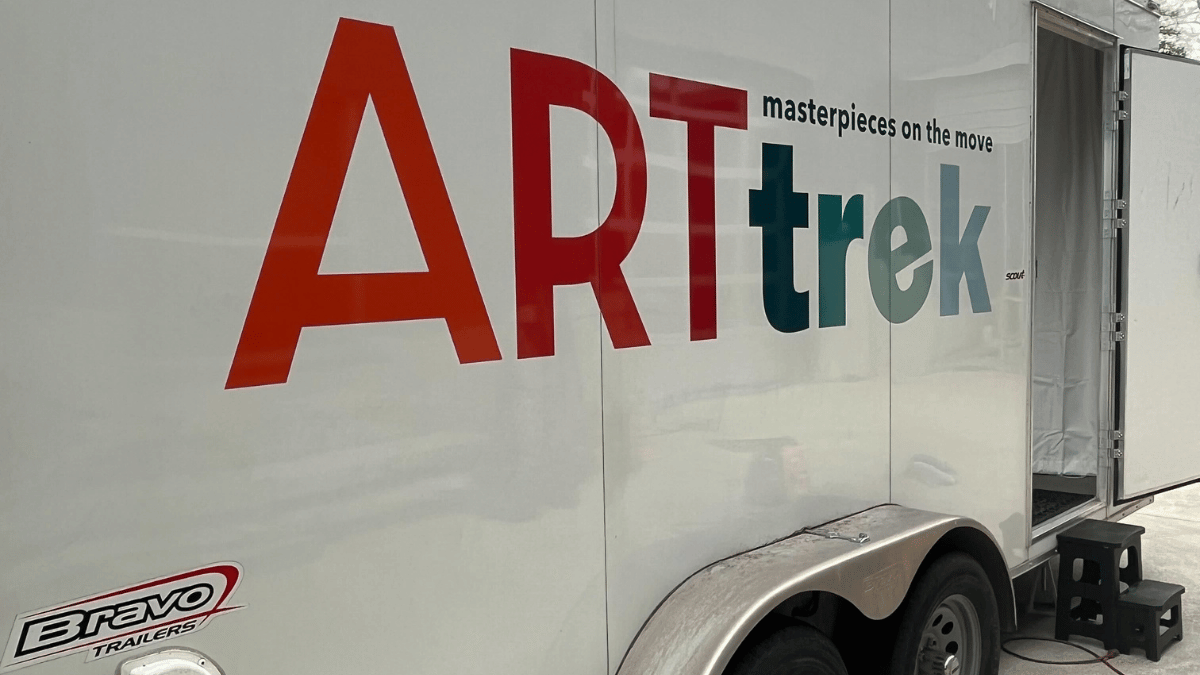This weekend, Shepherd University’s loyal fans in the Eastern Panhandle will cheer on their football program when they play in the Division II semifinals with hopes for a national championship berth.
College football in West Virginia is usually associated with the West Virginia Mountaineers and Marshall Thundering Herd. But this weekend, Shepherd University’s loyal fans in the Eastern Panhandle will cheer on their football program when they play in the Division II semifinals with hopes for a national championship berth.
The trip to the semifinals is the second for the Rams in as many years. The school is tucked away in a small town in the Eastern Panhandle, but like other small towns across the country, the success of their school’s sports teams is something many of the locals rally around.
“I’ve been to every single game, I haven’t missed a game,” Shepherd University student and student section leader Amelia Jenkins said. “I was in Connecticut when we started and I’ll be in Colorado on Saturday to cheer on the Rams.”
Fans like Jenkins were outside the school’s student center Thursday afternoon to see the team off in hopes for a road win against the Colorado School of Mines.
The team is led by quarterback Tyson Bagent, who was last season’s recipient of the Harlon Hill trophy – Division II football’s answer to the Heisman, which names the best player in the country. This season, he broke the record for most career touchdown passes in college football history, regardless of division.
“It’s good to know that all the work’s not going unnoticed,” Bagent said. “Also, I think it’s important for the younger people in my family to see what’s possible and kind of give them inspiration and motivation to do their thing.”
After his Harlon Hill campaign, Bagent had offers to transfer to Division I schools like West Virginia University and the University of Maryland, but ultimately decided to stay close to home. Despite playing at a smaller school, he’s gotten attention from scouts as a potential NFL draft pick.
“I’m from this area, I’ve always lived in this area,” he said. “So I mean, it’s all I know. And so for me to be an inspiration and kind of a motivating factor to the people in this area means everything to me.”
The team’s success is in part because of its coaching staff, led by head coach Ernie McCook. He was a coordinator with the program for years before he took over from longtime coach Monte Cater in 2018. Cater had more wins than any other active coach across college football before his retirement. McCook has continued the team’s level of success, but credits it to the school’s commitment to athletics.
“I think athletics is the front porch of every university and our success on athletic play and the playing field helps open up our university to a lot of different people,” McCook said.
The Rams have kept competitive by recruiting from local high school football powerhouses like Martinsburg High School, where Bagent was originally spotted.
“Seventy five percent of our alumni will live within 100 miles of the university,” he said. “So we’re able to have a lot of alumni support to help us and support us in recruiting.”
This year’s postseason saw Shepherd University beat the University of New Haven, as well as conference foes Slippery Rock and Indiana University of Pennsylvania. IUP handed the Rams a rare loss earlier in the season during the Pennsylvania State Athletic Conference championship game.
Last season, the Rams beat the University of Findlay, Notre Dame College in Ohio and Kutztown University on their way to the semifinals before falling to eventual champions Ferris State University.
The semifinal game is scheduled for 3:30 p.m. Saturday and will be broadcast on streaming service ESPN Plus.
